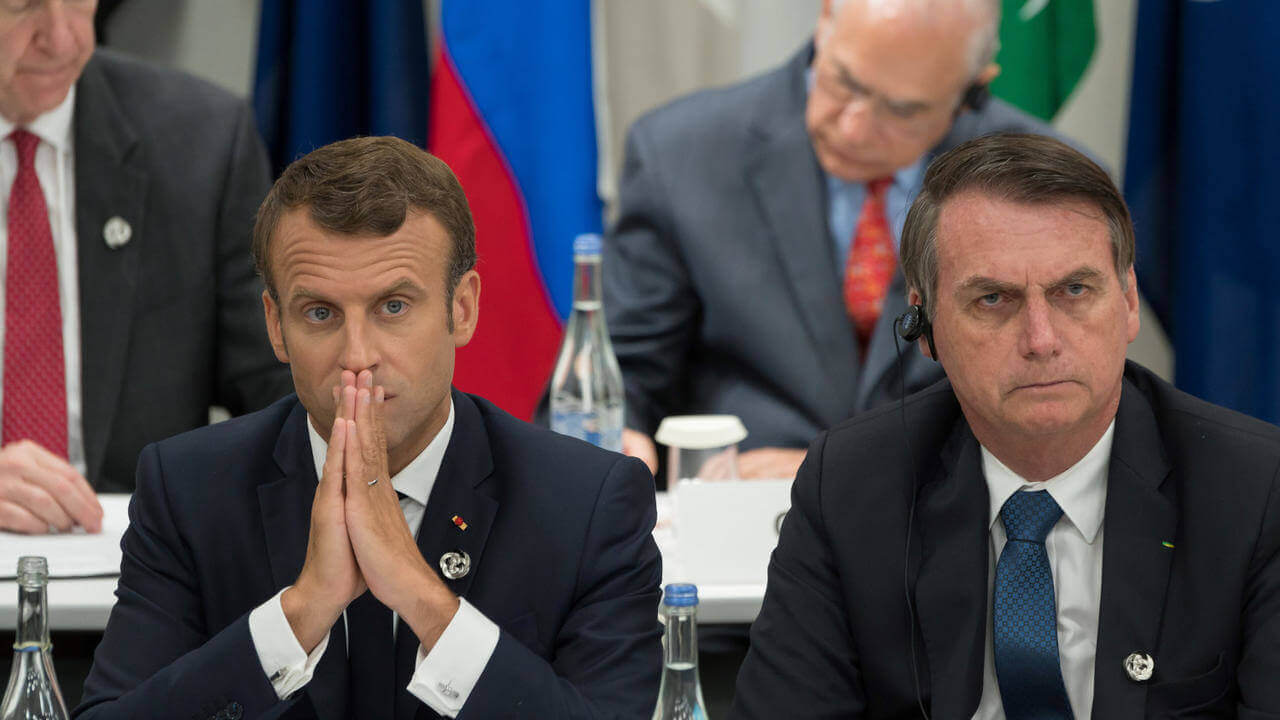The European Union (EU) has reiterated its call for Mercosur member-states to affirm their commitment to environmental sustainability before any potential trade agreement is struck, with an eye on Brazil, in particular.
Following a meeting between the economic ministers of the 27 member-states in Berlin, European Commissioner for Trade Valdis Dombrovskis said, “A growing number of country states and interested parties underline the significance of sustainable development in Mercosur countries, supporting the Paris Agreement and stopping deforesting, especially in Brazil.”
Dombrovskis added, “These issues must be addressed seriously and the European Commission expects to reach an understanding with Mercosur members.”
The EU and Mercosur came to a tentative agreement in June 2019 after twenty years of negotiations. However, the approval of the deal requires the unanimous assent of all 27 EU members and four Mercosur members—Brazil, Argentina, Paraguay, and Uruguay—as well.
Austria, Holland, Ireland, Luxembourg, and Belgium have already said that they will not ratify the deal so long as the current situation continues. France, which has not taken as strong a stance, nonetheless continues to press Mercosur states to put an end to deforestation, abide by the 2015 Paris climate agreement, and ensure that all Mercosur exports follow European environmental and sanitary guidelines. French President Emmanuel Macron has also called on Brazil to institute a greater degree of environmental protections.
In fact, the French government recently released a report which suggests that, if the agreement were to be signed with the situation as it stands, then an EU-Mercosur trade agreement would “accelerate deforestation by at least 25% annually” and “destroy 36,000 km2 of forest per year”.
Germany has been one of the most vocal supporters of the deal; however, it, too, has dithered in its approval of the agreement, with Chancellor Angela Merkel voicing her “serious doubts” about the deal.
In particular, Merkel is concerned about deforestation in the Amazon rainforest, which has been vastly accelerated under Brazilian President Jair Bolsonaro.
The German government’s spokesperson, Steffen Seibert, said, “We have serious doubts about whether the agreement can be implemented as planned when the situation is seen.” He added, “We are skeptical. The Amazon affects the whole world.”
Nevertheless, on Monday, German Economy Minister Peter Altmaier said that a “sustainable solution” can still be reached and that whatever issues there are can be “clarified”.
The deal, if signed, would create the world’s largest free-trade zone, comprising of roughly 800 million people. The agreement would remove the majority of tariffs on EU exports and reduce a number of trade barriers.
In response to these developments, Brazilian President Jair Bolsonaro, at a virtual meeting of the United Nations General Assembly, said, “We are victims of one of the most brutal disinformation campaigns about the Amazon and the Pantanal wetlands.”
However, in truth, Brazil’s National Institute for Space Research (INPE) estimates that deforestation between August 2019 and July 2020 increased by around 35%. In 2019, the first year of Bolsonaro’s rule, Amazon deforestation rose by 29% to an 11 year high, severely threatening both the environment and the 900,000 Indigenous peoples of Brazil. When the Amazon fires were at their peak last year, he refuted INPE data and then dismissed the agency’s chief.
This year, the deforestation rate between January and May was 22% higher than during the same period in 2019. In July, INPE data revealed that deforestation in the Amazon rainforest increased for the 14th consecutive month, marking the highest level of deforestation since 2005. In addition, INPE recorded 2,248 fires in the Amazon in June, the highest such number since 2007. However, Bolsonaro has claimed that government imposing a temporary 120-day ban on the practice are “lies”. In reality, despite the ban, fires in the rainforest and 28% higher than at the same time last year.
For now, it appears that the twenty-year wait for this agreement to be signed must go on.
Ratification of EU-Mercosur Trade Deal Hangs in the Balance Over Environmental Concerns
European leaders remain unconvinced by Brazil’s commitment to implementing the necessary changes to bring about environmental sustainability.
September 23, 2020

IMAGE SOURCE: JACQUES WITT / AFPFrench President Emmanuel Macron (L) and his Brazilian counterpart Jair Bolsonaro
